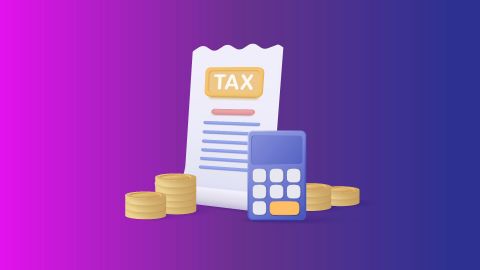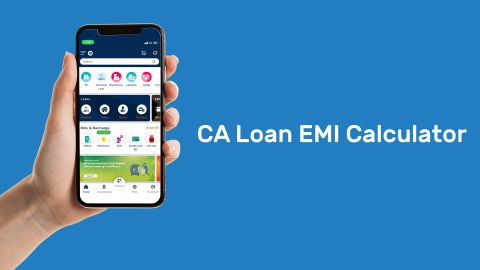What does a tax advisor do?
Tax advisors perform a variety of tasks, including:
- Tax planning: Creating practical plans to lower tax outgo, defer payments where allowed, and make use of tax-saving options.
- Compliance: Making sure all applicable tax laws, rules, and filing requirements are followed correctly and on time.
- Understanding tax laws: Interpreting complex tax provisions and clearly explaining how they affect individuals or businesses.
- Strategic guidance: Advising on investments, business decisions, and financial planning in a tax-efficient manner.
- Resolving tax issues: Representing clients before tax authorities and helping settle notices, disputes, or audits.
- Staying updated: Keeping track of changes in tax laws and government budgets to help clients benefit from new provisions.
How to become a tax advisor?
Becoming a tax advisor involves several steps:
- Get the right education: Start with a relevant bachelor’s degree to build a solid understanding of accounting, finance, and basic law.
- Pursue professional certifications: Enrol in recognised courses such as CA, CMA, or CS to gain detailed knowledge of Indian tax laws and regulations.
- Gain practical experience: Look for internships or entry-level roles with accounting firms, tax consultants, or company finance teams to get hands-on experience in tax filing, planning, and compliance.
- Stay updated and choose a specialisation: Tax rules in India change often, so regular learning is essential. You can also specialise in areas like corporate tax, GST, or international taxation to strengthen your expertise.
- Build a professional network and practise: Join bodies such as the ICAI and attend industry seminars and events. With enough experience, you can start your own practice or move into a senior role within an established firm.
Various types of advisory areas within tax
Tax advisory encompasses several specialized areas, including:
- Corporate tax advisory: Handling tax issues for businesses
- International tax advisory: Addressing global tax implications
- Estate planning: Creating strategies for wealth transfer
- Tax litigation: Representing clients in tax disputes
- Indirect tax advisory: Focusing on VAT, GST, and other non-direct taxes
How tax advisors help businesses and individuals
Tax advisors play a crucial role in helping both businesses and individuals manage their tax obligations efficiently. They provide expert guidance on tax planning, compliance, and filing, ensuring that all legal requirements are met while optimising savings. Their insights help minimise financial risks, avoid penalties, and make informed investment decisions aligned with tax regulations.
Key ways tax advisors assist include:
- Tax planning: Developing strategies to legally reduce tax liabilities through exemptions, deductions, and rebates.
- Compliance management: Ensuring timely filing of income tax and GST returns while adhering to evolving laws.
- Representation before authorities: Acting on behalf of clients during tax assessments, audits, or disputes.
- Investment advice: Suggesting tax-efficient investment options that align with financial goals.
- Business structuring: Advising on the best entity type (LLP, partnership, or private limited company) to optimise taxation and compliance.
- Regulatory updates: Keeping clients informed about new tax rules, budget changes, and compliance deadlines.
Difference between a tax advisor and an accountant
Aspect
|
Tax Advisor
|
Accountant
|
Primary role
|
Specialises in tax laws, planning, and compliance to legally reduce tax liability
|
Handles financial records, prepares accounts, and manages overall financial reporting
|
Area of expertise
|
In-depth knowledge of income tax, GST, and other tax regulations
|
Expertise in bookkeeping, financial statements (balance sheet, profit and loss), and auditing
|
Main objective
|
Develops legal strategies to minimise tax outgo using deductions and exemptions
|
Ensures accurate financial data and compliance with accounting standards such as GAAP or IFRS
|
Representation
|
Can represent clients before tax authorities during audits or disputes, if suitably qualified
|
Generally limited to documentation and reporting; usually cannot represent clients in tax disputes
|
Scope of advice
|
Advises on tax-efficient investments, business structuring, and estate planning
|
Provides guidance on budgeting, cost control, financial performance, and business decisions
|
Common tax advisory challenges and solutions
Challenge
|
Description
|
Solution
|
Frequent Regulatory Changes
|
Tax rules change often, making it hard to stay updated and compliant.
|
Continuous Learning: Attend workshops, training sessions, and follow official government updates regularly.
|
Data Accuracy and Availability
|
Clients may keep poor records, share incomplete data, or submit details late, causing errors and delays.
|
Use Technology: Adopt accounting software and digital document systems for accurate and timely records.
|
Complex Tax Structures
|
Managing different taxes like income tax, GST, and corporate tax across locations is challenging.
|
Professional Support: Work with qualified tax experts to understand complex rules and get correct guidance.
|
Increased Scrutiny
|
Tax authorities are conducting more checks, increasing the risk of audits and disputes.
|
Strong Risk Management: Maintain proper documentation, clear tax controls, and proactive communication with authorities.
|
Managing Client Expectations
|
Some clients have unrealistic expectations or resist paying taxes due to lack of understanding.
|
Clear Communication: Set clear deadlines, explain processes, and stress the importance of correct compliance.
|
Peak Season Workload and Talent
|
Heavy workloads during peak periods can cause staff burnout and hiring issues.
|
Automation & Outsourcing: Automate routine tasks and outsource non-core work to manage workload efficiently.
|
Conclusion
Tax advisors play a vital role in helping clients navigate the complex world of taxes. From planning to compliance, their expertise ensures financial efficiency and compliance with the law. If you aim to become a tax advisor, initial educational and professional support is crucial. Consider leveraging professional loans, such as a CA loan from Bajaj Finance to kickstart your career and achieve your goals in tax advisory.
Before applying, it's essential to know what qualifications and documents are required to secure funding. Reviewing the basic criteria can help streamline the application process. You can check the detailed list of documents and conditions for funding on the CA loan eligibility page. For aspiring professionals concerned about the overall cost of borrowing, understanding the applicable charges and interest is equally important. Exploring the latest rates and charges will help you compare options effectively. For up-to-date details, visit the CA loan interest rate section.





